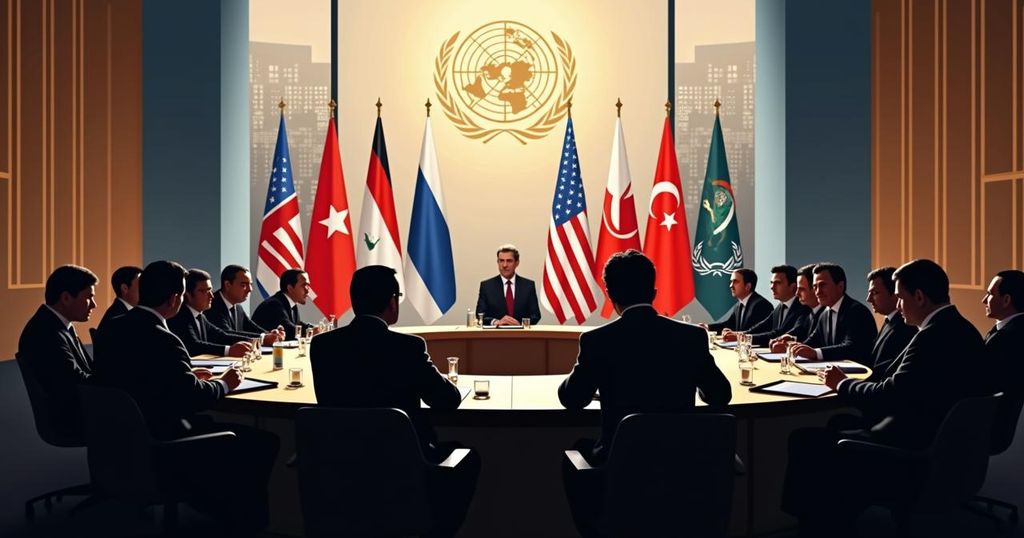Small States Challenge the One China Principle at the UN: A Risky Diplomatic Endeavor
Four small states – Marshall Islands, Eswatini, Palau, and Paraguay – have controversially proposed Taiwan’s inclusion in the UN system, contradicting the established One China Principle which recognizes Taiwan as part of China. This initiative raises questions about the influence of the United States and the implications of small nations challenging international norms.
In the midst of significant global challenges, including the ongoing conflicts in Gaza and Ukraine, the United Nations General Assembly (UNGA) has become a platform for a notable yet controversial proposal from four small states: Marshall Islands, Eswatini, Palau, and Paraguay. These nations have recently advocated for Taiwan’s inclusion in the UN system, a move that contradicts the widely accepted One China Principle. This principle asserts that Taiwan is part of China, upheld through various UN resolutions, including Resolution 2758, which established the legitimacy of the People’s Republic of China as the sole representative of China. The ongoing situation raises questions about the motivations behind these smaller nations’ actions. Historically, the United States has supported Taiwan’s attempts for independence, seemingly incentivizing small states to adopt similar positions. Given their financial reliance on the United States, one might speculate that these countries received support to advance this contentious agenda at the UNGA. Moreover, China’s response to any challenges to the One China Principle is unequivocal, casting doubt on the wisdom of the four nations’ diplomatic initiative. Their actions echo the themes of the 1959 film “The Mouse That Roared,” where a diminutive nation takes on a formidable opponent, albeit with much graver potential consequences in today’s geopolitical climate. This suggests that these smaller states may be unwitting pawns in a larger foreign policy game that strives to destabilize international norms and avoid further conflict.
The One China Principle is a significant aspect of international relations regarding Taiwan, influencing how the UN system operates. Following the recognition of the People’s Republic of China as the legitimate government of China in 1971, this principle has been integral in maintaining the UN’s framework. Despite this, certain nations have challenged these norms by calling for Taiwan’s representation, reflecting underlying geopolitical tensions, particularly with regard to U.S.-China relations. As these tensions manifest in various diplomatic forms, the involvement of smaller states in this debate highlights their vulnerability and the influence of larger powers on their foreign policy stances.
The call for Taiwan to join the UN system by the Marshall Islands, Eswatini, Palau, and Paraguay starkly opposes the longstanding One China Principle. Given the historical context and established UN resolutions, this initiative raises doubts about the motivations behind such a proposal, possibly hinting at external influences from the United States. Ultimately, although these smaller states seek to challenge the status quo, their actions appear more symbolic than impactful, and they risk provoking unnecessary tensions with a major global power like China.
Original Source: europeansting.com




Post Comment